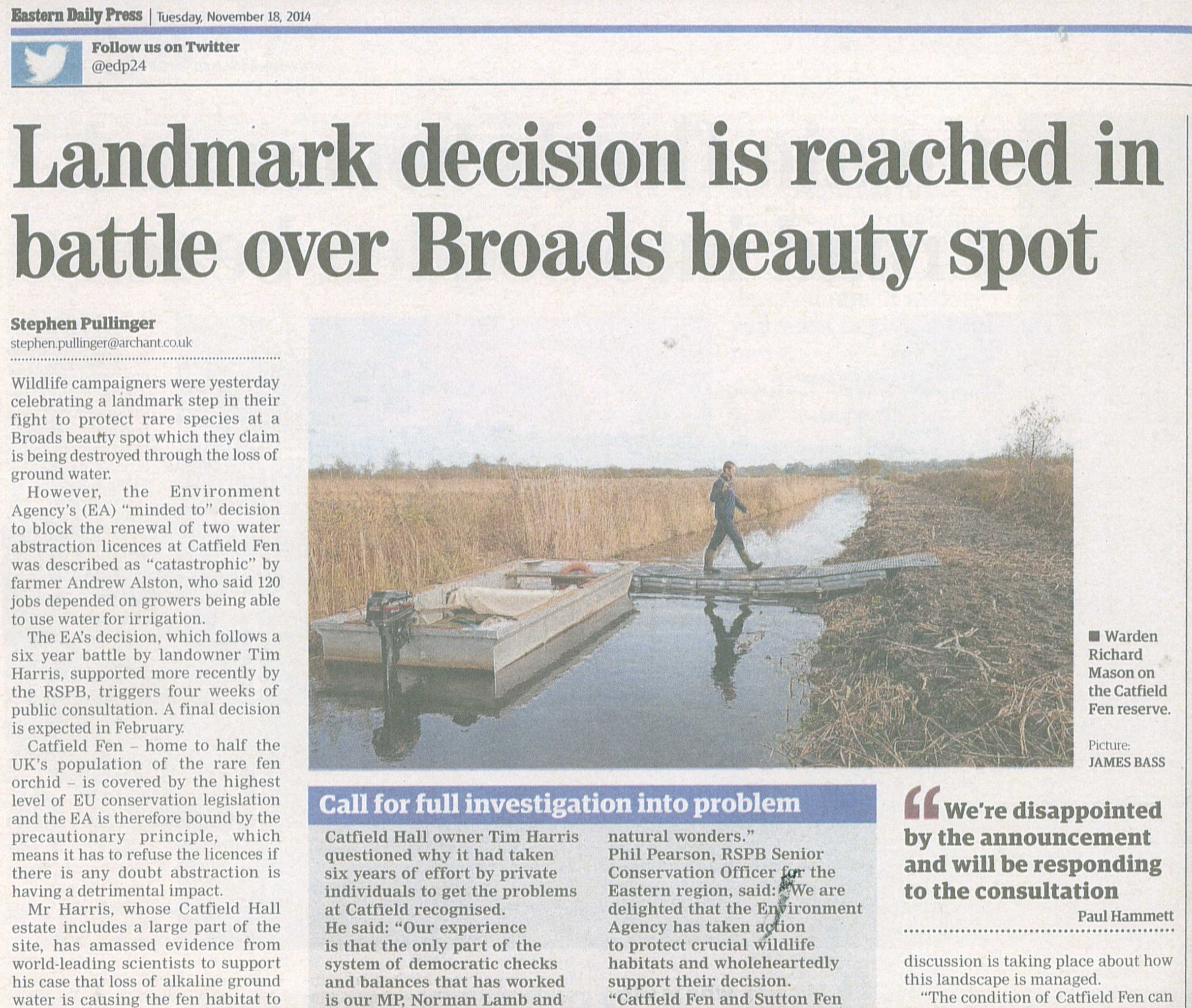
Landmark decision is reached in battle over Broads beauty spot
Wildlife campaigners were yesterday celebrating a landmark step in their fight to protect rare species at a Broads beauty spot which they claim is being destroyed through the loss of groundwater.
However, the Environment Agency’s (EA) “minded to” decision to block the renewal of two abstraction licenses at Catfield Fen was described as “catastrophic” by farmer Andrew Alston, who said 120 jobs depended on growers being able to use water for irrigation.
The EA’s decision, which follows a six-year battle by landowner Tim Harris, supported more recently by the RSPB, triggers four weeks of public consultation. A final decision is expected in February.
Catfield Fen – home to half the UK’s population of the rare fen orchid – is covered by the highest level of EU conservation legislation and the EA is therefore bound by the precautionary principle, which means it has to refuse the licenses if there is any doubt abstraction is having a detrimental impact.
Mr Harris, whose Catfield Hall estate includes a large part of the site, has amassed evidence from world-leading scientists to support his case that loss of alkaline ground water is causing the fen habitat to become drier and more acidic. Experts from the RSPB, which manages a smaller part of the fen, have reached the same conclusions.
The fear is that fen orchids, which have a narrow pH tolerance, will disappear over time and another iconic Broads species – the swallowtail butterfly – could also be hit because its food plant, milk parsley, cannot survive in an overly acidic environment.
NFU water resources specialist Paul Hammett said: “We’re disappointed by the announcement and will be responding to the public consultation.
“This has been a long-running saga and none of the many reports produced so far has shown a clear link between abstraction and the ecology of the fen. Meanwhile, no discussion is taking place about how this landscape is managed.
“The condition of Catfield Fen can be shaped as much by the management of the land that encompasses the fen as the management of the water.”
EA manager Charles Beardall said: “The Broads are a unique ecosystem. It is our job to balance the needs of people, farmers and businesses with the environment.”
Call for full investigation into problem
Catfield Hall owner Tim Harris questioned why it had taken six years of effort by private individuals to get the problems at Catfield recognised.
He said: “Our experience is that the only part of the system of democratic checks and balances that has worked is our MP, Norman Lamb and the press – particularly the EDP.
“There needs to be a full post mortem of the Catfield case so the right lessons are learned for the protection of our natural wonders.”
Phil Pearson, RSPB Senior Conservation Officer for the Eastern region, said: “We are delighted that the Environment Agency has taken action to protect crucial wildlife habitats and wholeheartedly support their decision.
“Catfield Fen and Sutton Fen [the RSPB’s neighbouring reserve] are considered by conservationists to be the “best of the best” within one of Europe’s most important wetland sites.”
